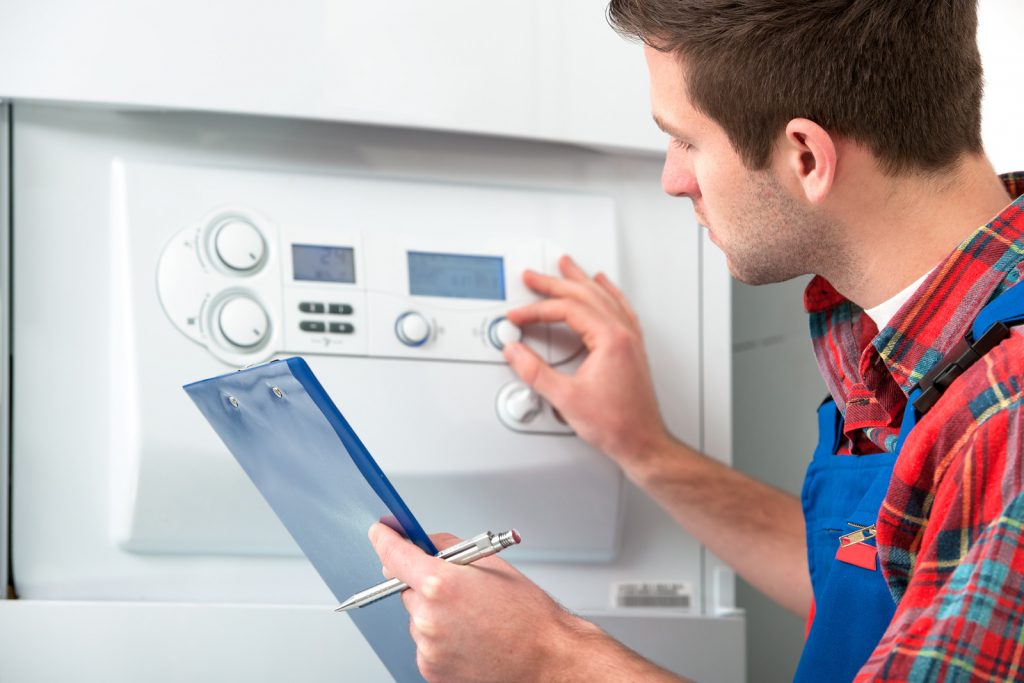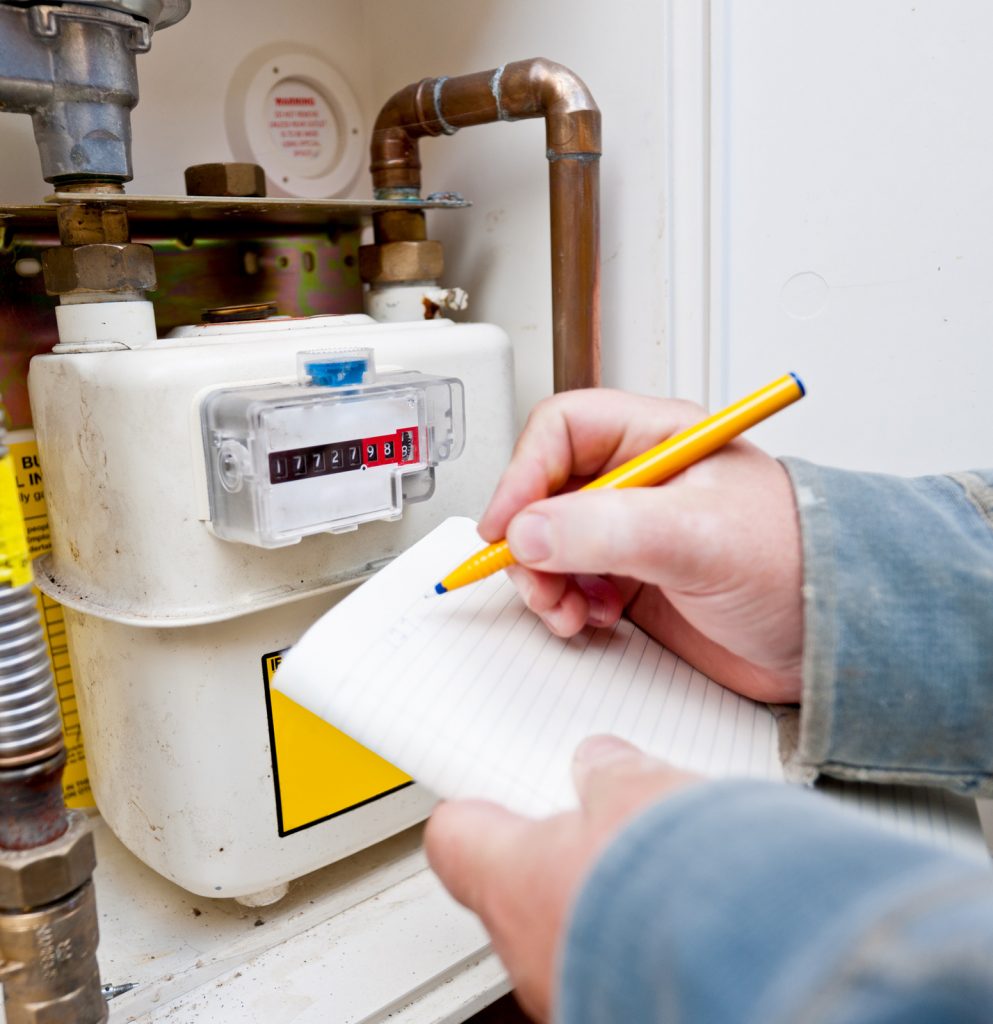Introduction to boiler commissioning
Boiler commissioning is the process of setting up a new boiler after installation to ensure it operates safely, efficiently and meets legal requirements. It involves following a boiler commissioning checklist to test and adjust the boiler correctly.
Commissioning can only be completed by a Gas Safe registered engineer. It is required by law under the Gas Safety (Installation and Use) Regulations (GSIUR).
The key stages of commissioning include:
- Controls check – Testing programmable thermostats, optimum start controls etc.
- Hydraulic testing – Pressure testing central heating system.
- Flushing the system – Removing debris from pipes and radiators.
- Adding corrosion inhibitor – To prevent damage to system.
- Gas rating – Checking gas supply flow rate and pressure.
- Testing flue gases – Using an electronic combustion gas analyser.
- Adjusting boiler output – Setting heat output to match property.
Correct boiler commissioning ensures the boiler is set up properly for safety, efficiency, and reliability. It also provides peace of mind to the customer that the system is legally compliant.
What is the boiler commissioning procedure?
Boiler commissioning means checking that a new boiler is set up correctly so it works the best it can. The installer goes through a legal checklist to make sure everything is installed right and working properly. This helps get the most efficiency from the boiler for heating and hot water, and catches any problems early. It’s an important final step to ensure a boiler is ready for safe use by the customer.

As the manufacturer doesn’t usually install the boiler, building regulations require that boiler installations need to comply with the manufacturer’s instructions, and they provide a checklist for installers to follow and fill in when they have completed the relevant test.
It involves a Gas Safe registered engineer following a comprehensive boiler commissioning checklist provided by the Heating and Hotwater Industry Council (HHIC) to thoroughly test and adjust the boiler.
Commissioning is a mandatory requirement by law under the Gas Safety (Installation and Use) Regulations (GSIUR). All gas boiler installations in the UK must comply with these regulations.
Boiler Commissioning Checklist: Key Stages
The key stages of the boiler commissioning process include:
- Controls check – Testing that any programmable room thermostats, hot water timers, optimum start controls are properly installed and functioning. These controls help manage the boiler efficiently.
- Hydraulic testing – Pressure testing the central heating system to check for leaks. The system is filled with water, pressurised, and then inspected closely for any drops in pressure that would indicate leaks.
- Flushing the system – Thoroughly flushing through the heating system piping and radiators using a special cleaner to remove any debris, dirt, or flux residues from the installation process. This helps prevent possible blockages.
- Adding corrosion inhibitor – Adding a corrosion inhibitor chemical to the system water to prevent internal corrosion of system components. This maintains system integrity.
- Gas rating – Checking the gas supply flow rate and adjusting to within tolerance if required. This ensures the boiler gets the correct gas pressure.
- Testing flue gases – Using an electronic combustion gas analyser to measure levels of carbon monoxide (CO) and other gases in the flue. This checks combustion is safe and efficient.
- Adjusting boiler output – Setting the boiler’s heat output range to match the size and demand of the property. This optimises efficiency.
- Pressure testing – Checking all gas pipework connections are completely sealed using leak detection fluid and/or pressure gauges.
- Registering guarantee – Registering the boiler guarantee and warranty package.
- Explaining operation – Demonstrating the boiler and controls to the customer. Providing instruction manuals.
The Boiler Benchmark Scheme
The Benchmark scheme aims to improve the standards of boiler installation in the UK and encourage the regular servicing of central heating systems so they are safe and efficient.
When it is filled in, the boiler benchmark commissioning checklist can be used to show compliance with Building Regulations and it is given to the customer to keep for future use: such as to help with the warranty, annual boiler servicing, home insurance and when selling the house etc.
Gas boiler commissioning checks
The following are the main checks a gas engineer will perform once the boiler has been installed:
Check for gas leaks
Make sure the whole installation is ‘gas tight’. By performing a tightness test at the meter, the engineer can check if there are any gas leaks in the system now the boiler has been fully installed.
Test if water is heating up properly
After performing more checks at the meter, the engineer will then move to the boiler itself to check that the water is being heated up properly. Depending on the output of the boiler, an amount of water will need to be heated up sufficiently in one minute.
Check the right amount of gas is coming to the boiler
Next, the pressure coming into the boiler will be tested to see if it’s getting enough gas when it is turned on full. If there is another gas appliance, such as a cooker, this will be turned on at the same time to see if that is affected at all.
Gas rate the boiler
The engineer will then move onto checking how much gas the boiler is using up when on maximum, the manufacturer’s instructions will state how much it should be per hour, known as gas rating and the boiler needs to comply with this figure.
Too high or too low on this figure will need to be investigated as this can affect safety and efficiency. It could even be that the pipework needs to be increased so the boiler gets enough gas to function.
Check the flame is igniting correctly
Then comes the safety check on the boiler to make sure that if for some reason there is no flame present to ignite the gas coming into it, the boiler shuts down to prevent gas build up which could cause an explosion.
Check if the boiler flue was installed properly
The flue pipe coming out of the boiler will also be checked to make sure the boiler is getting rid of combustion fumes effectively and not going back into the room, this is done with a flue gas analyser.
Fit a magnetic filter
During the commission, a magnetic filter will be added to collect metallic dust and debris from the radiators so they don’t go on to cause damage to the boiler. Along with this, corrosion inhibitor will be put in to help maintain the system in good condition for longer. It also helps delay repairs that could occur from the system being clogged.
Record all the results
A ‘benchmark’ checklist is fully completed and signed to record the readings and confirm the boiler is safe to use. This is kept by the customer for future use by engineers who come to service and fix the boiler.
Show the customer how to use the boiler safely
The engineer will then explain to the customer how the boiler works and sets the heating and hot water temperatures to the customer’s needs.

Completing commissioning
Once all commissioning checks are complete, the final stage is to finish off the process properly.
- Explaining operation – The engineer must spend time explaining how to operate the boiler and its controls to the customer. This includes setting temperatures, use of timers, troubleshooting advice etc.
- Providing manuals – All appliance manuals and warranties are handed over, along with the Benchmark checklist paperwork.
- Servicing schedule – The customer is advised on the need for regular annual servicing by a Gas Safe registered engineer. This is crucial for safety and performance.
- Benchmark checklist – The full benchmark checklist is completed by the engineer to record details of the installation for the warranty provider and to meet building regulations.
- Warning notice – A warning notice should be fixed next to the boiler with details on how to safely isolate the appliance in an emergency.
- Permanent labels – Permanent labels showingserial numbers, model, and electrical detail should be attached for future reference.
- Legal certification – A Gas Safety Certificate is issued to the customer, legally confirming a Gas Safe compliant installation.
Ensuring all aspects of handover are covered gives the customer complete peace of mind about the safety, operation, and maintenance of their new gas boiler.
Here you can see a copy version of the commissioning checklist from the Heating and HotWater Industry Council
It’s all about Gas Safety
There are other checks done by the engineer when going through the checklist to make sure everything is recorded. The engineer should explain some of the controls with the boiler and thermostat so you are informed and will register the boiler guarantee. They will also leave the manufacturer’s instructions with you. Keep this in a safe place.
As you can see, there are many checks to be done to make sure the boiler is working properly and it is important you get someone competent and registered with Gas Safe to commission the boiler for you.
- These are some of the tools a gas engineer will use when working on your boiler
Boiler not commissioned
Sometimes, you may come across a boiler that hasn’t been commissioned, possibly before you moved in or a builder/installer not doing the job correctly. In the first instance, you should aim to contact the installer to fix this issue. If that’s not possible, the only alternative is to contact a suitably qualified engineer to do the commissioning and, after being satisfied with the overall installation, sign the certificate. There will obviously be a charge for this.
Warranties on boilers are only valid with manufacturers if the appliance has been installed correctly and the commissioned boiler has been registered with them with the checklist results. This normally has to be done within one month of installation. The installer also needs to inform the Local Authority about the installation to confirm the building regulations for gas appliances have been followed.
But ultimately, it is the owner’s responsibility to ensure the gas boiler is registered and confirmed as safe to use.

